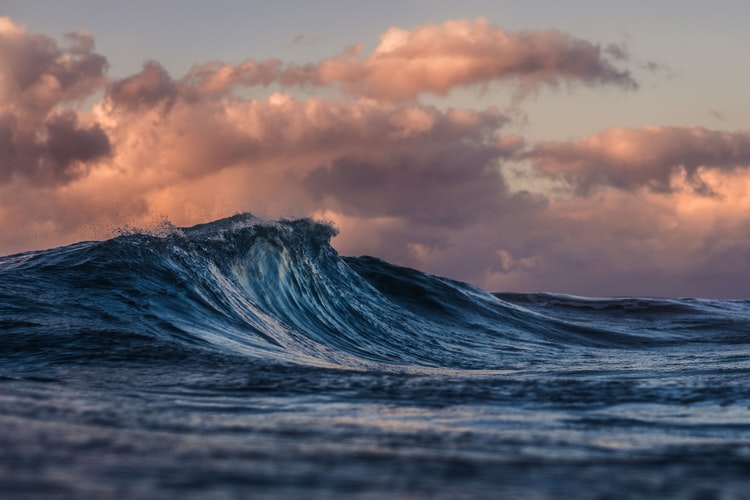
What causes ocean waves?
The ocean is never still. Whether you’re enjoying the view from the beach or a boat, you expect to see waves. But why does the ocean have waves? In fact, wind is the most common cause for waves. Because the friction between wind and surface water creates wind-driven waves, or surface waves. So, as wind blows across the surface of the ocean or a lake, the continual disturbance creates a wave crest. And these waves move constantly across the open ocean and along the coast.
Fun fact: Waves transmit energy, not water, across the ocean. Energy from wind passing through water creates waves, causing it to move in a circular motion. The water itself doesn’t travel. Instead, it’s the energy that’s moving. If not obstructed by anything, the energy of waves has the potential to travel across an entire ocean basin.
Some ocean waves are potentially hazardous
Severe weather, like a hurricane, can cause more potentially hazardous waves. The strong winds and pressure from this type of severe storm causes a storm surge, a series of long waves that are created far from shore in deeper water and intensify as they move closer to land.
Also, underwater disturbances that displace large amounts of water quickly such as earthquakes, landslides, or volcanic eruptions can cause other hazardous waves. These very long waves are tsunamis. Storm surge and tsunamis are not the types of waves you imagine crashing down on the shore. These waves roll upon the shore like a massive sea level rise and can reach far distances inland. In fact, hazardous waves can cause a lot of damage.
The moon and the sun also get involved
The gravitational pull of the sun and moon on the Earth also causes waves. Certain alignments with them cause high and low tides. These waves are tides or, in other words, tidal waves. It’s a common misconception that a tidal wave is also a tsunami. Tides do not cause tsunamis.
Bottom line: Energy passing through water creates ocean waves. Some are even hazardous. Here’s a 30-second video explaining why oceans have waves.
Via NOAA National Ocean Service
Video: Perpetual Ocean will wow you
The post What causes ocean waves? first appeared on EarthSky.
0 Commentaires